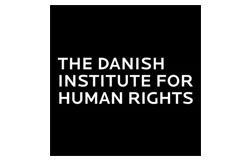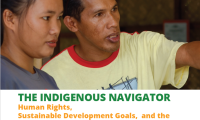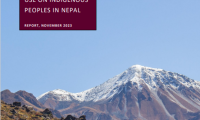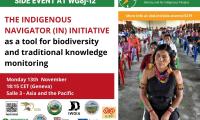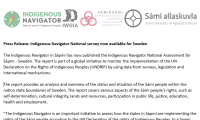Indigenous Navigator National and community surveys now available for Honduras
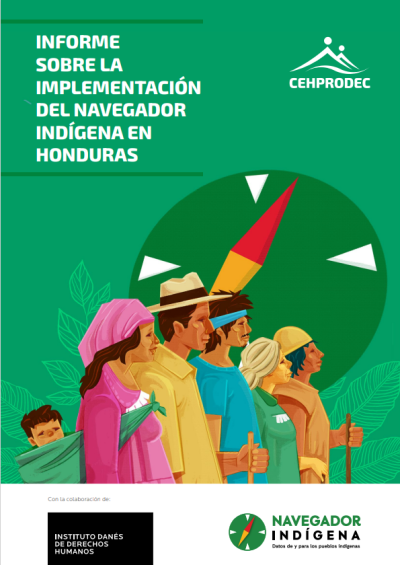
The Centro Hondureño para la Promoción del Desarrollo Comunitario (CEHPRODEC) with the support of the Danish Institute for Human Rights, implemented the Indigenous Navigator national assessment and three community surveys in Honduras, as part of the global initiative to monitor the implementation of the UN Declaration on the Rights of Indigenous Peoples (UNDRIP).
The national assessment provides an overview of the situation of Indigenous Peoples of Honduras in 12 key areas, including, self-determination, cultural integrity, participation in public life, and freedom of speech. The three community surveys monitor the human rights situation of the Lencas, Tolupanes and Pech communities.
In partnership with these Indigenous Peoples, CEHPRODEC visited six different communities to lead workshops on the UNDRIP and to gather firsthand information on the level of compliance of the Honduran government with its international obligations regarding the rights of Indigenous Peoples.
Some of the key findings are:
- Even if Honduras recognizes the right to self-determination of Indigenous Peoples in the constitution, there are some concerning limitations like the lack of recognition of their traditional authorities in decision-making processes.
- Honduras has ratified the ILO Convention 169. However, it has not put into place any mechanism to operationalize the right to prior consultation. The lack of regulation means that this guarantee is not put into practice when implementing projects in the territories of Indigenous communities.
- Some Indigenous communities do not a have a legally recognized title over their ancestral lands, even if there is a ‘historical recognition’ over their territories, the official legal documents have been long lost, and the public authorities have not put much effort into recovering and translating ancestral legal titles.
- There is little participation of Indigenous Peoples in traditional media and limited opportunities for grass-root media initiatives. Consequently, Indigenous Peoples voices and languages are rarely amplified in main-stream media and decision-making spaces.
Despite these shortcomings, the Honduran authorities are working together with Indigenous communities to improve the protection and promotion of their fundamental rights.
The results of the assessments are available to the public at the Indigenous Navigator Data Portal and the report on the process and its findings are available at CEHPRODEC’s website.
For more information, please contact: Juan José Verhelst from the Danish Institute for Human Rights juve@humanrights.dk.

Centro Hondureño para la Promoción del Desarrollo Comunitario (CEHPRODEC)
